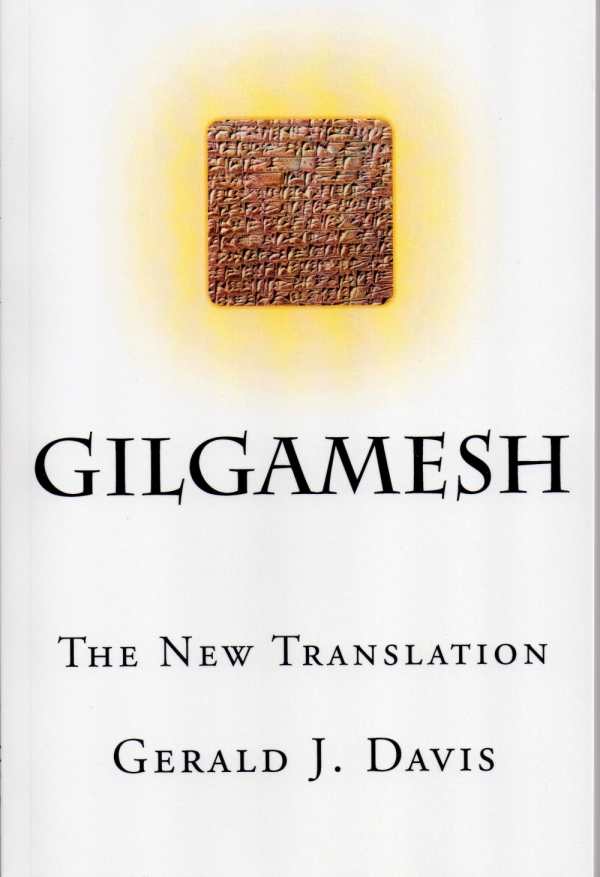Gilgamesh
The New Translation
Davis offers an intriguing, provocative translation of an ancient hero’s tale.
Gerald J. Davis, whose previous work includes translations of Beowulf and Don Quixote, returns with an approachable take on a tale that predates the Bible. Gilgamesh: The New Translation synthesizes the work of previous scholars with an eye toward comprehensibility, making an epic of extreme importance accessible to the masses.
Davis’s preface presents Gilgamesh in an exciting manner, as humanity’s oldest preserved story. He briefly recounts the nature of its lengthy unearthing and its presentation in biblical circles from the nineteenth century forward. He pays homage to scholars like George Smith, who worked tirelessly to bring the content of ancient cuneiform tablets into popular relief.
Absent are citations of Davis’s own credentials, which remain a mystery throughout, somewhat hampering his authority. An explanation of missing footnotes, borrowed from Noel Coward, hints at the playful and passionate attitude that directs this body of work.
Davis presents the epic in narrative form, forgoing tendencies of previous translators to offer it in verse. This, in addition to his bold decisions regarding diction, make the text far easier to approach than is often the case in more pedantic translations. Readers will learn what Gilgamesh is like, rather than being forced to puzzle over what the text may or may not say precisely.
Davis’s translation results in a version of the epic that preserves the authorial tendencies of the tablets, such as poetic repetition, while removing from them barriers created by linguistic obscurity. Readers meet Gilgamesh, two-thirds god and wholly majestic, in all of his glory: the king who terrified Uruk—“Through the city of Uruk did Gilgamesh stride. … His arrogance swelled with each day and each night. … His lust was unbounded”—until the gods saw fit to interrupt his bombastry by creating for him a near-equal friend, Enkidu. Through Enkidu’s counsel, Gilgamesh learns to rule more honorably. Together, they defeat terrifying foes and vanquish obstacles of divine design.
Readers will be swept up in Davis’s presentation, in which his diction maintains the lofty tone of ancient language without the usual trappings of punctilious word choice. In a text unhindered by scholarly interlocution, it’s easier to see those features that were shocking to earlier biblical circles. The flood narrative, which echoes and predates Noah, as well as other biblical parallels, stands to provoke new conversations, this time among laity. Essays from earlier translators append the work and draw attention to related controversies.
Those who are familiar with the Gilgamesh epic will be curious about how Davis arrived at this translation. He throws credit the way of earlier translators but leaves readers wondering how reliant he was on their work and how much of this translation involves his own interaction with the original text.
That said, there’s much for laymen to gain by engaging Davis’s translation, which is both fresh and approachable.
Reviewed by
Michelle Anne Schingler
Disclosure: This article is not an endorsement, but a review. The publisher of this book provided free copies of the book and paid a small fee to have their book reviewed by a professional reviewer. Foreword Reviews and Clarion Reviews make no guarantee that the publisher will receive a positive review. Foreword Magazine, Inc. is disclosing this in accordance with the Federal Trade Commission’s 16 CFR, Part 255.

